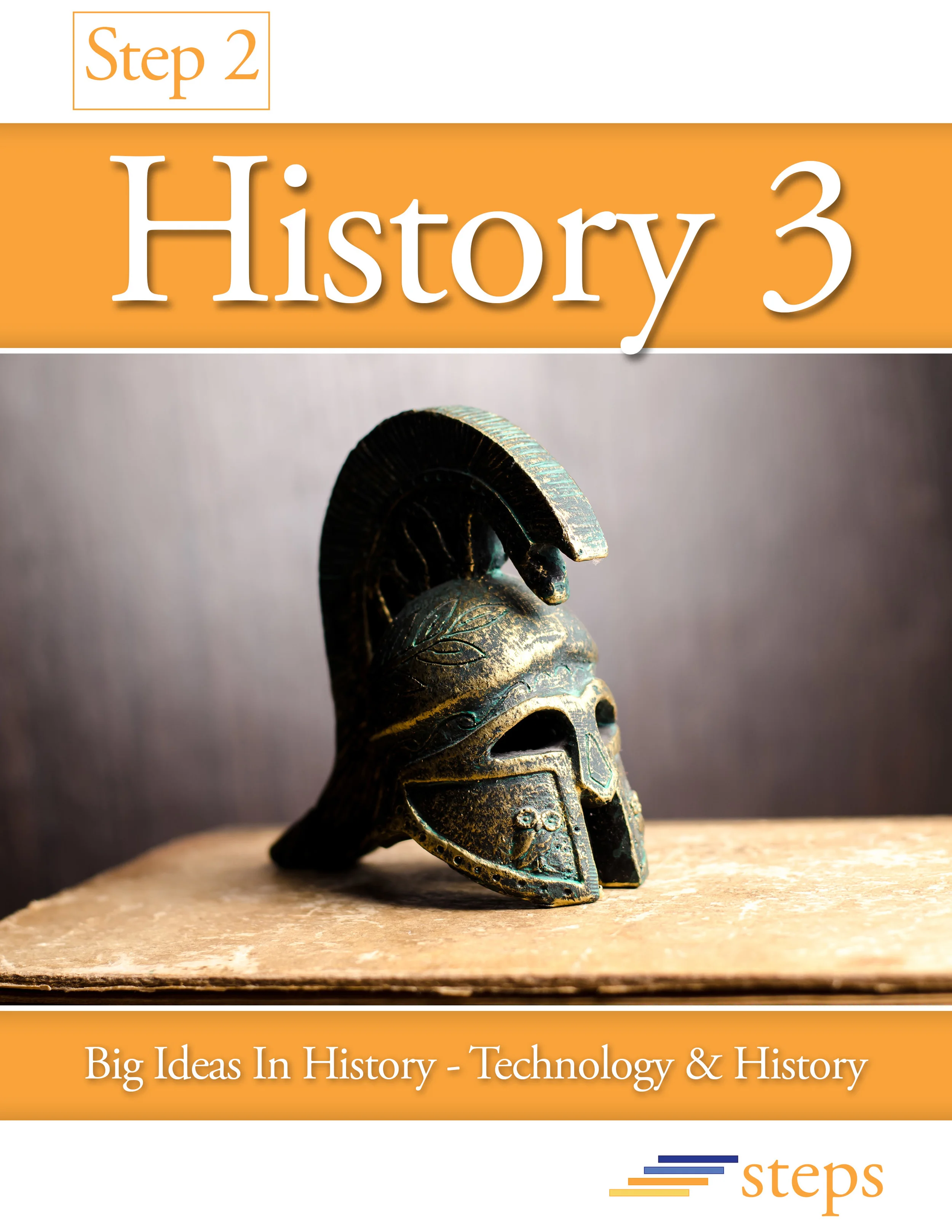Step 2 - History 3 - Big Ideas in History - Technology & History
Step 2 - History 3 - Big Ideas in History - Technology & History
REVISED 2025!
Develops literacy, vocabulary!
Introduces & explores key ideas in history!
Introduces the subject and importance of technology!
Fun, hands-on activities!
Develops critical thinking skills!
Works well for any-aged student developing literacy!
Lesson plans are complete and ready to use! Start now!
My son and I just completed History III lesson 12, Understanding Life- Biology, Darwin, Theophrastus, Linnaes, and Vavilov. What struck me during the time my son and I read and understood the lesson was, the number of children being educated these days that study subjects, that seem to exist by themselves and that have little relevance to each other. It is no wonder why history, math or science is boring to most children. What my son and I just experienced was a vocabulary, geography, history and science lesson with a lab, all rolled into one! We learned what biology is, but we learned it in terms of the first scientists, and so we now know something about the passion they had for their subjects. Imagine being a scientist and guarding a seed vault from starving people in St Petersberg during a 900 day siege during WWII or as the Russian's call it, the great patriotic war. That is history and science coming alive! My son concluded his lesson by going outdoors, into the world to catalog and record the life he found around the house. He didn't leave anything out. A is getting a REAL education, thanks to your insight and effort to produce the best curriculum available today. Thanks R.P/, "Father of A."
_____
REVISED 2025!
The last course in the first semester of Step 2 History continues looking at big ideas. This course covers the many ways that science and technology have changed not only history, but also our lives today. From the first Greek scientist, Thales, to Einstein, a good look at the ways science made history, and continues to do so today.
What big ideas in science shifted human experience? How has technology made us what we are today? What is the purpose of technology in history, and where will it take us? The student studies science not so much as science, but as an important element in our history, all while developing literacy. For ages 7-8, and for students of any age who are developing literacy.
16 lessons which will enlighten and fascinate, 5-6 weeks.
Concepts covered in this course include:
What is technology
The Stone Age
The Bronze Age
The Iron Age
The Wheel
The use of rivers for travel
The birth of farming and cultivation as a way of life
The birth of science in ancient Greece
Roman science
Islamic Science
The Renaissance and science
Da Vinci
Ways that science figures out the physical universe
Electric Light - Franklin, Tesla, Swan and Edison
Bell and the telephone
The Wright Brothers and the airplane
Ford, the automobile and the factory system
The Internet
Biology
Darwin (a part of a lesson plan that can be skipped for those who do not wish to teach it)
Linnaeus, the father of modern Botany
Vavilov, greatest Botonist
Einstein, light and the universe





